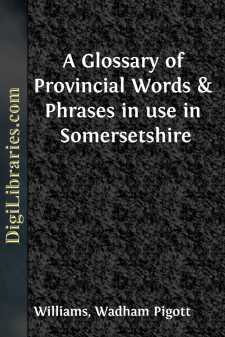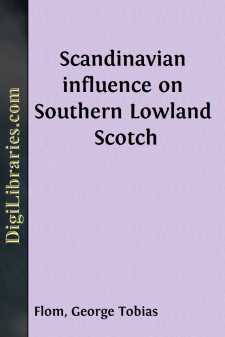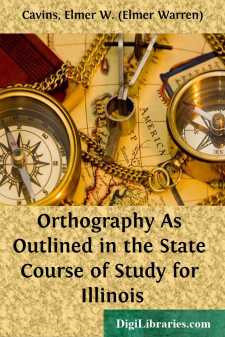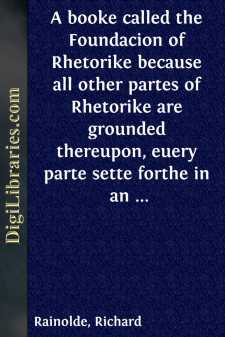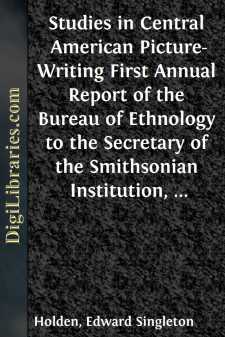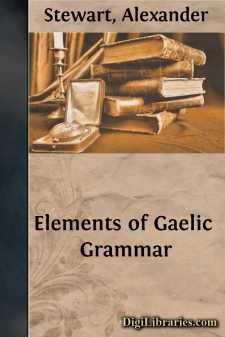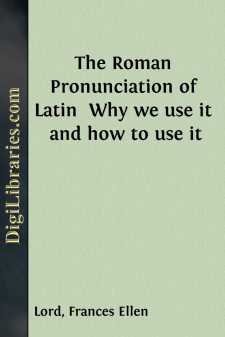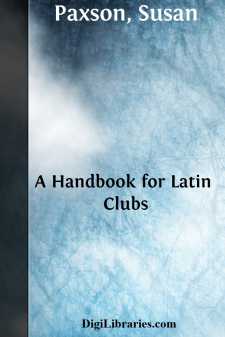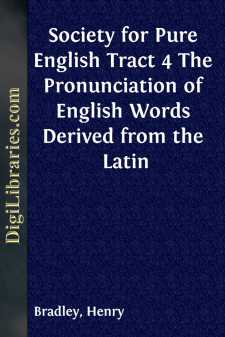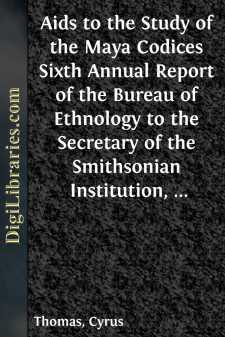Language Arts & Disciplines
Language Arts & Disciplines Books
Sort by:
INTRODUCTION. The following paper from the pen of Dr. Prior was read at a Conversazione of the Society at Taunton, in the winter of 1871, and as it treats the subject from a more general point of view than is usually taken of it, we print it with his permission as an introduction to our vocabulary:— On the Somerset Dialects. The two gentlemen who have undertaken to compile a glossary of the Somerset...
more...
PREFACE. This work aims primarily at giving a list of Scandinavian loanwords found in Scottish literature. The publications of the Scottish Text Society and Scotch works published by the Early English Text Society have been examined. To these have been added a number of other works to which I had access, principally Middle Scotch. Some words have been taken from works more recent—"Mansie...
more...
INTRODUCTIONBY DR. EDWIN C. HEWETT. I have long thought that the careful, discriminating study of words is much neglected in our schools. And I am glad to approve, and help to forward, anything that will promote such a study. Not only will such a study improve a person's language greatly, but it will, at the same time, do much to improve the clearness and precision of his thinking; thought and...
more...
by:
Richard Rainolde
To the Reader. PHTHONIVS a famous man, wrotein Greke of soche declamacions, to en-structe the studentes thereof, with all fa-cilitée to grounde in them, a moste plenti-ous and riche vein of eloquence. No manis able to inuente a more profitable waieand order, to instructe any one in the ex-quisite and absolute perfeccion, of wisedome and eloquence,then Aphthonius Quintilianus and Hermogenes. Tullie...
more...
Since 1876 I have been familiar with the works of Mr. John L. Stephens on the antiquities of Yucatan, and from time to time I have read works on kindred subjects with ever increasing interest and curiosity in regard to the meaning of the hieroglyphic inscriptions on the stones and tablets of Copan, Palenque, and other ruins of Central America. In August, 1880, I determined to see how far the principles...
more...
INTRODUCTION. The utility of a Grammar of the Scottish Gaelic will be variously appreciated. Some will be disposed to deride the vain endeavour to restore vigour to a decaying superannuated language. Those who reckon the extirpation of the Gaelic a necessary step toward that general extension of the English which they deem essential to the political interest of the Highlands, will condemn every project...
more...
INTRODUCTION. The argument brought against the ‘Roman pronunciation’ of Latin is twofold: the impossibility of perfect theoretical knowledge, and the difficulty of practical attainment. If to know the main features of the classic pronunciation of Latin were impossible, then our obvious course would be to refuse the attempt; to regard the language as in reality dead, and to make no pretence of...
more...
by:
Susan Paxson
THE VALUE OF LATIN"Latin is the most logically constructed of all the languages, and will help more effectually than any other study to strengthen the brain centres that must be used when any reasoning is required."—Dr.Frank Sargent HoffmanThe Latin Language.Mosaics in History. Arthur Gilman.Chautauqua. Vol. ii, p. 317.Illustrated History of Ancient Literature. John D. Quackenbos. P. 305.A...
more...
by:
Henry Bradley
ON THE PRONUNCIATION OF ENGLISH WORDS DERIVED FROM LATIN [This paper may perhaps need a few words of introduction concerning the history of the pronunciation of Latin in England. The Latin taught by Pope Gregory's missionaries to their English converts at the beginning of the seventh century was a living language. Its pronunciation, in the mouths of educated people when they spoke carefully, was...
more...
by:
Cyrus Thomas
INTRODUCTION. The object of this paper is to present to students of American paleography a brief explanation of some discoveries, made in regard to certain Maya codices, which are not mentioned in my previous papers relating to these aboriginal manuscripts. It is apparent to every one who has carefully studied these manuscripts that any attempt to decipher them on the supposition that they contain true...
more...


